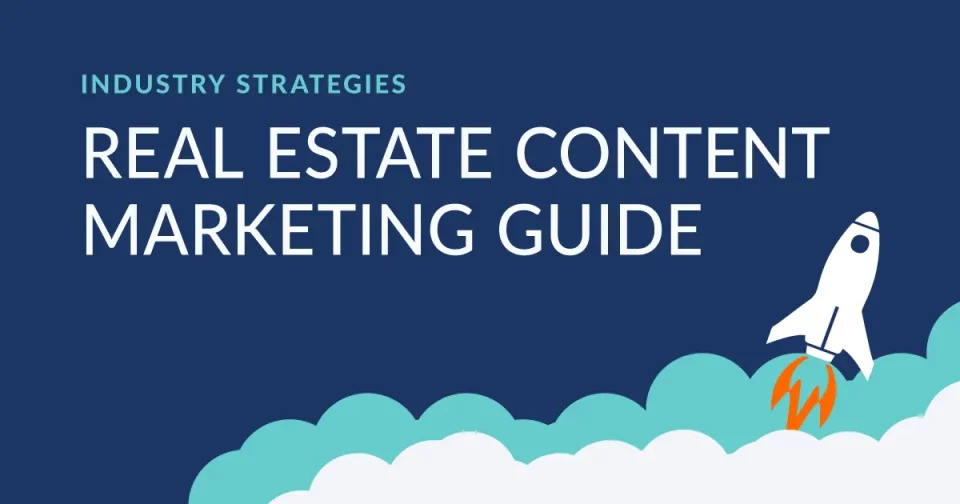
Now more than ever, the power of strategic content cannot be overstated when it comes to establishing dominance in the competitive real estate industry. Content marketing strategy empowers businesses to captivate, educate, and inspire their target audience through the creation and distribution of valuable and relevant content. It goes beyond traditional advertising by focusing on building trust, establishing thought leadership, and nurturing long-term relationships.
By crafting compelling articles, engaging videos, informative blog posts, and other forms of content, businesses can position themselves as authoritative industry voices, attract a loyal following, and ultimately drive profitable actions. With its ability to seamlessly blend brand messaging with valuable information, content marketing stands as a powerful tool in today’s digital landscape Prepare to transcend boundaries, elevate your marketing prowess, and forge a path of unrivalled success!
Benefits of Real Estate Content Marketing
Content marketing offers a wealth of benefits that are directly relevant to the real estate industry. A strategic approach to your content marketing can establish yourself as a trusted industry authority, increase brand visibility, attract a targeted audience, and generate high-quality leads. This means more opportunities to showcase your expertise, stand out from competitors, and ultimately, drive business growth and success.
Increase brand awareness. Consistently publishing high-quality content and sharing it through various online channels, real estate professionals can significantly increase brand visibility. As more people come across your content while searching for relevant information, they are more likely to remember the brand and consider it when the need for real estate services arises.
Enhanced lead generation. Effective content marketing strategies can attract a steady stream of leads for real estate professionals. By offering valuable insights, tips, and advice through their content, they can establish credibility and gain the trust of potential clients. This can lead to an increase in inquiries, form submissions, and ultimately, conversions.
Establish industry authority. Content marketing allows real estate professionals to showcase expertise and establish themselves as authorities. By addressing audience pain points and offering solutions, you position yourself as a reliable and knowledgeable source. Good content captures the attention of the audience and converts them into leads.
Foster long-term relationships. Through consistent content creation and distribution, you can nurture relationships with your audience. By providing ongoing value, you can stay top-of-mind and foster long-term connections. Who amongst us wouldn’t want to nurture repeat business, referrals, and positive word-of-mouth?
Developing a Content Marketing Strategy
To make the most of real estate content marketing, you need a well-defined strategy. Here are key steps to develop an effective content marketing plan:
- Define Your Goals. Clearly outline your marketing objectives, whether it’s lead generation, brand awareness, or establishing authority.
- Identify Your Target Audience. Understand who your ideal clients are, their pain points, and the type of content they seek.
- Conduct Keyword Research. Identify relevant keywords and phrases to optimize your content for search engines and attract organic traffic.
- Create a Content Calendar. Plan and organize your content creation and distribution schedule to ensure consistency.
- Diversify Your Content Formats. Experiment with different formats such as blog articles, videos, podcasts, and infographics to cater to various audience preferences.
- Incorporate Call-to-Actions. Guide your audience to take desired actions by including clear and compelling calls-to-action within your content.
- Track and Analyze Performance. Monitor the performance of your content using analytics tools to gain insights and make data-driven optimizations.

Creating Engaging Content for Real Estate
When crafting real estate content, it’s essential to make it engaging, informative, and visually appealing. It needs to resonate with readers and provide value. Here are some tips to create compelling content:
Target audience familiarity. Identify ideal clients, their preferences, interests, pain points, and common questions. A deeper understanding of your target audience helps you tailor content to address specific needs and provide the most relevant information.
Storytelling. Share success stories, case studies, or personal experiences that resonate with your audience and showcase your expertise.
Provide Local Insights. Highlight local market trends, neighborhood profiles, and tips specific to your target area to attract local buyers and sellers.
Use Visual Content. Visual elements play a valuable role in capturing the attention of the audience and enhancing the overall user experience. Incorporate quality images, videos, and infographics to enhance the visual appeal and make your content more shareable. This can help you to showcase properties, demonstrate expertise, and effectively communicate complex information.
Try Different Formats. Real Estate content should not be limited to just written articles or blog posts. Leverage various content formats, such as videos, infographics, podcasts, and virtual tours, to capture the attention of their audience. Diversifying content formats allows you to cater to different learning preferences and engage a wider range of potential clients.
Address Frequently Asked Questions. Anticipate common questions and provide thorough and insightful answers to establish yourself as a reliable resource.
Offer Practical Tips and Guides. Share practical advice, step-by-step guides, and industry secrets to provide actionable value to your audience.

Optimizing Content for Search Engines
To ensure your content reaches a wider audience, optimize it for search engines. Here are some essential SEO practices for getting the most out of your real estate content efforts:
Conduct Keyword Research. Keyword research is a core aspect of SEO (Search Engine Optimization). Identify relevant keywords and phrases that your audience is searching for and incorporate them naturally into your content. Tools like Google Keyword Planner and SEMrush can provide valuable insights into popular search terms and help optimize content accordingly.
Optimize Metadata. Craft compelling titles, meta descriptions, and URL slugs that contain relevant keywords and accurately describe your content. Additional optimizations include appropriate alt tags and captions for images.
Internal and external links. Include internal links to other relevant pages on your website. Externally, backlinks from reputable and authoritative websites are a vital factor in improving search engine rankings. Real estate professionals should focus on building relationships with other industry influencers, guest posting on relevant blogs, and creating link-worthy content to earn high-quality backlinks. This can help boost the credibility and visibility of their content. Explore our Link Outreach and Link Builder services, or if you’re unsure how to choose we created an article comparing both strategies.
Improve Page Loading Speed. Optimize your website’s performance by compressing images, minimizing code, and leveraging caching techniques to enhance user experience.
Leveraging Social Media for Real Estate Content Marketing
Social media platforms provide an excellent opportunity to distribute and amplify your real estate content. Here’s how to make the most of social media:
- Choose the Right Platforms. Identify the social media platforms where your target audience is most active and establish a presence there. Platforms like Facebook, Instagram, LinkedIn, and Twitter are popular choices for real estate marketing.
- Engage with Your Audience. Respond to comments, answer questions, and participate in discussions to foster engagement and build relationships. By being responsive and helpful, you build trust and establish yourself as an approachable industry expert.
- Share Visual Content. Utilize visually appealing images, videos, and infographics to captivate your audience and encourage sharing.
- Use Hashtags. Research and use relevant hashtags to expand your content’s reach and attract a broader audience.
- Collaborate with Influencers. Partner with influential individuals or organizations in the real estate industry to reach new audiences and gain credibility.

Building an Email Marketing Campaign
Email marketing allows you to directly communicate with your audience and nurture leads. Consider these tips for a successful real estate email marketing campaign:
- Grow Your Subscriber List. Offer valuable incentives, such as exclusive market reports or informative guides, to encourage visitors to subscribe to your emails.
- Personalize Your Emails. Segment your subscriber list and send targeted, personalized emails based on their interests and preferences.
- Provide Valuable Content. Share valuable resources, industry insights, and exclusive listings to keep your audience engaged and interested.
- Include Clear Calls-to-Action. Encourage your subscribers to take action by including clear and compelling calls-to-action in your emails.
- Analyze Email Metrics. Monitor open rates, click-through rates, and conversion rates to understand the effectiveness of your email campaigns and make necessary adjustments.
Collaborating with Influencers and Partners
Partnering with influencers and relevant industry professionals can significantly boost your real estate content marketing efforts. Consider these collaboration strategies:
- Identify Influencers and Partners. Research and identify influential individuals, such as real estate agents, interior designers, or mortgage brokers, who can complement your expertise.
- Guest Blogging and Content Exchanges. Collaborate with influencers and partners to contribute guest blog posts on each other’s websites or exchange content for mutual promotion.
- Joint Webinars or Events. Host webinars or events with influencers or industry experts to provide valuable insights to your audience and expand your reach.
- Cross-Promotion on Social Media. Share each other’s content on social media platforms to reach a wider audience and tap into each other’s followers.
- Sponsorships and Endorsements. Explore sponsorship opportunities or seek endorsements from influencers to boost your credibility and increase brand awareness.

Measuring and Analyzing Content Performance
Measuring the effectiveness of your real estate content marketing efforts is crucial for continuous improvement. It helps to identify content topics that resonate well with your target audience, determine the most effective distribution channels, and refine your overall content strategy. Here’s how to track and analyze content performance:
Set Key Performance Indicators (KPIs). Define measurable goals, such as website traffic, lead generation, time on page, time on site, bounce rate or social media engagement, to assess the success of your content. The goal behind monitoring KPIs is to assess the impact of your content marketing efforts and be able to make data-driven decisions.
Use Analytics Tools. Analytics tools, such as Google Analytics, provide valuable insights into the performance of content. This data can help identify which content pieces are performing well and which areas require improvement.
Monitor Conversion Rates. Determine how many visitors are converting into leads or clients as a result of engaging with your content.
Overcoming Challenges in Real Estate Content Marketing
While real estate content marketing offers numerous benefits, it also comes with its own set of challenges. Here are some common challenges faced by real estate professionals and strategies to overcome them:
- Limited Time and Resources. Plan and prioritize your content creation efforts. Delegate tasks, or consider outsourcing using Blog Content Writing or SEO Copywriting services if necessary. Repurposing existing content can be an effective option in order to maximize efficiency.
- Staying Consistent. Create a content calendar, establish a routine, and batch tasks to maintain consistency in publishing content. Remain updated with industry news, market trends, and changes in buyer and seller preferences by following industry publications, attending conferences, participating in online forums, and networking with other professionals.
- Addressing Legal and Compliance Issues. Familiarize yourself with real estate regulations and guidelines to ensure your content meets legal requirements.
- Standing Out in a Saturated Market. Differentiate your content by providing unique insights, personalized experiences, and high-quality visuals that set you apart from the competition. Stand out by developing a unique brand voice, showcasing your expertise through valuable content, and providing exceptional customer service.
- Adapting to Changing Algorithms. Stay updated with search engine algorithm changes, social media platform updates, and adapt your content strategy accordingly. By staying ahead of algorithm changes, you are able to maintain or improve visibility and rankings in search engine results.
Wrapping Up
Real estate content marketing is a powerful strategy for attracting, engaging, and retaining a target audience. By creating valuable and relevant content, optimizing it for search engines, leveraging social media platforms, and measuring performance, you can establish yourself as an industry authority, build trust and brand awareness, and attract quality leads. Despite the challenges, with a strategic and data-driven approach, real estate professionals can effectively utilize content marketing to achieve success in the competitive real estate market.
AuthorityPilot is your ultimate partner in unlocking the full potential of your real estate business. With our comprehensive platform, services and expert guidance, you can create and distribute compelling content that sets you apart from the competition. Start your journey with AuthorityPilot today and dominate your market!







